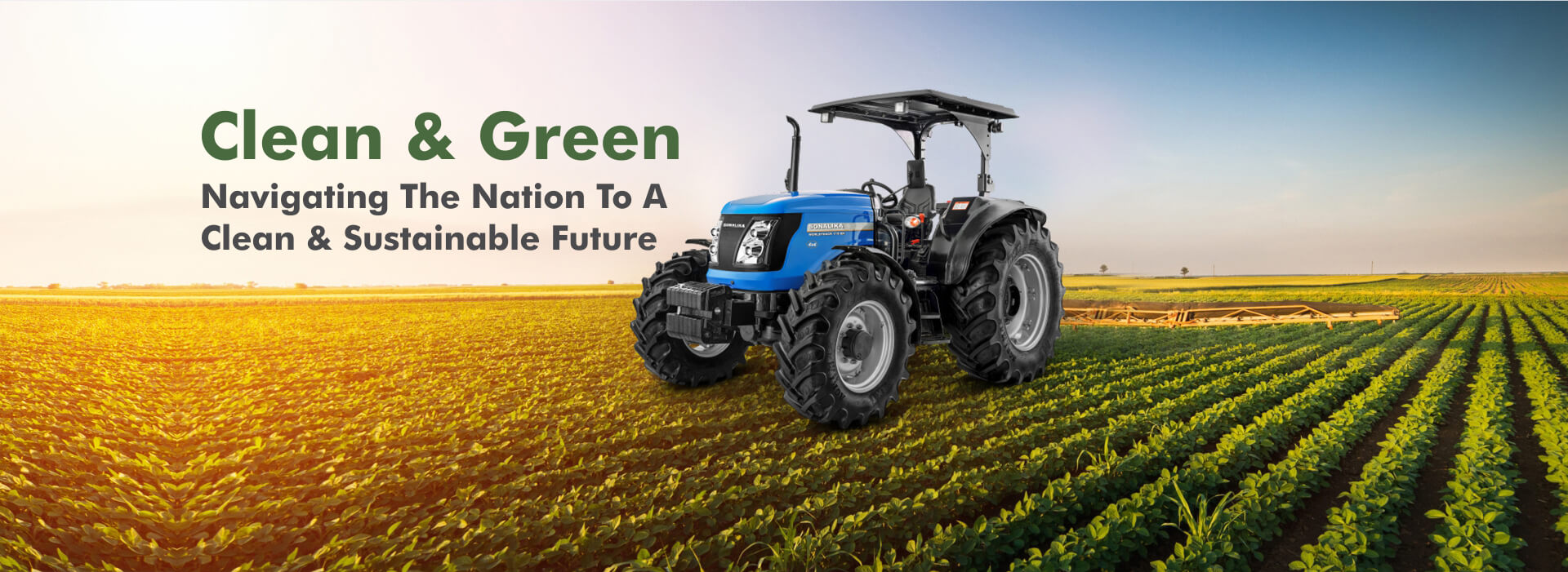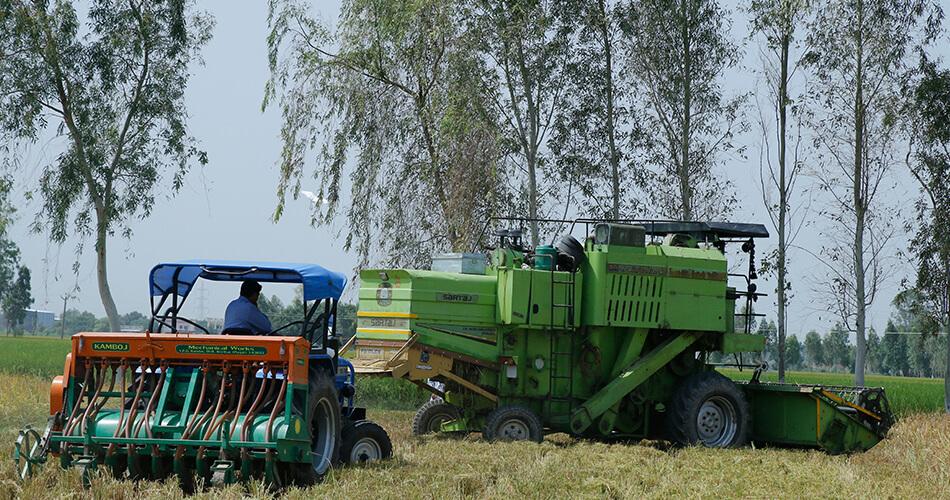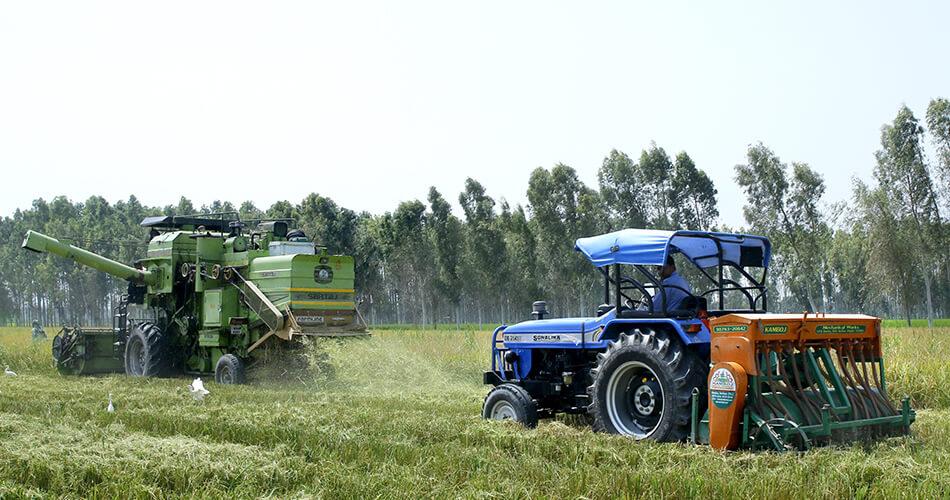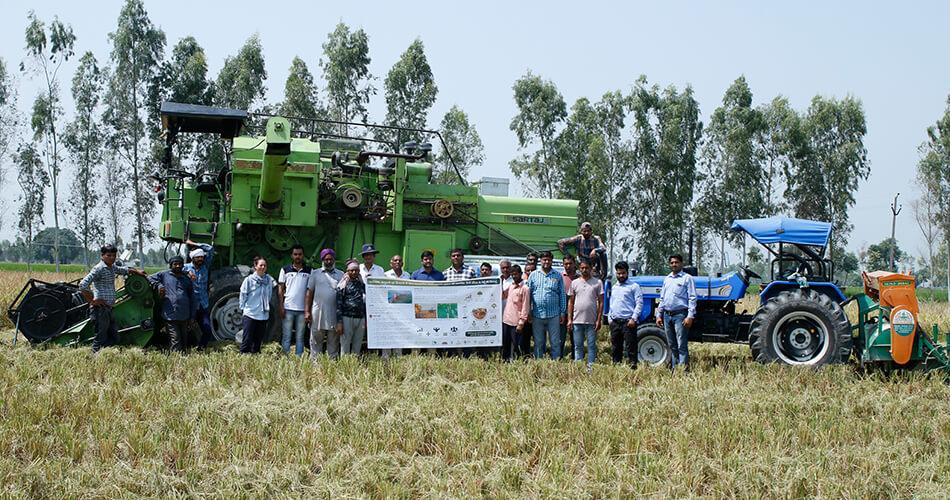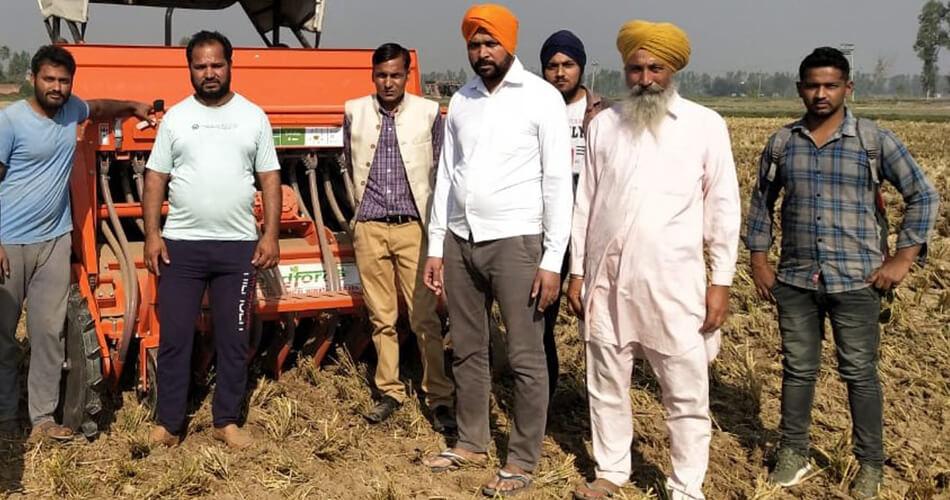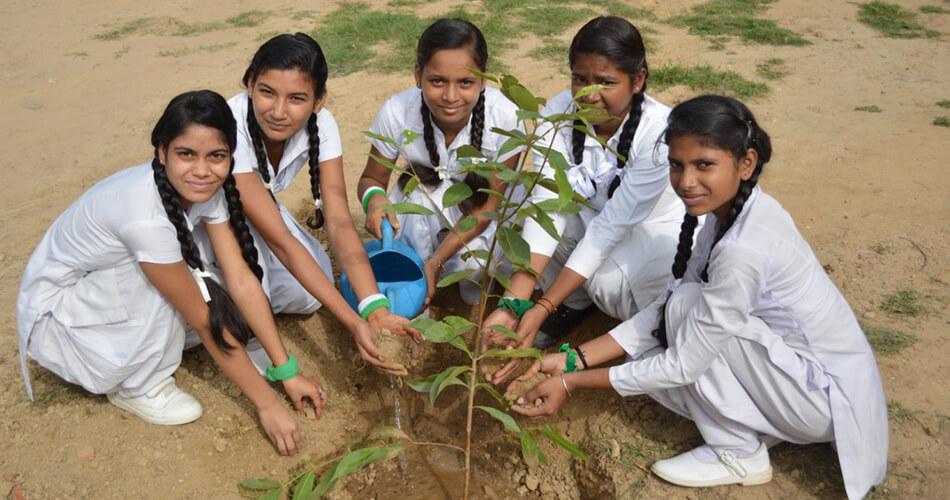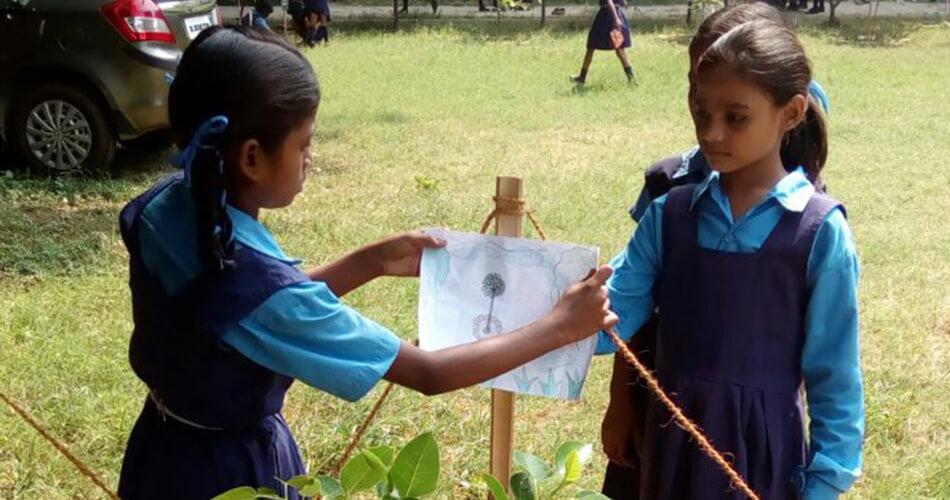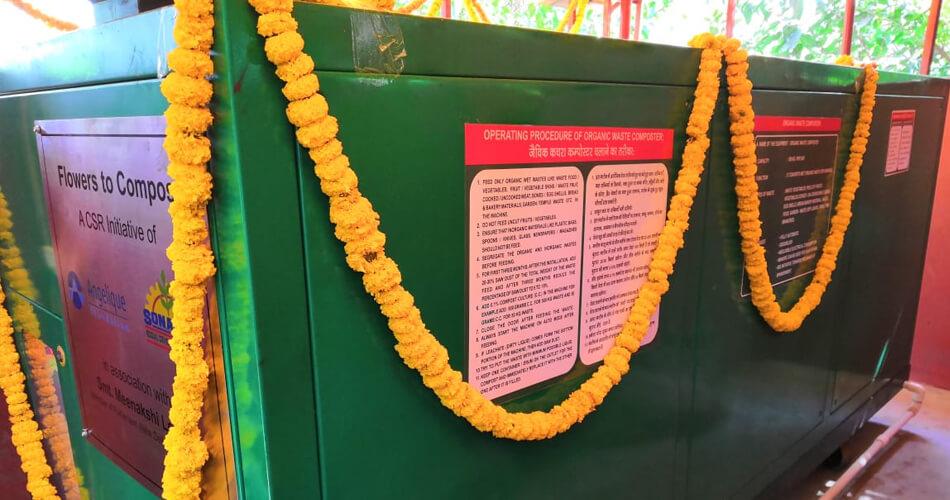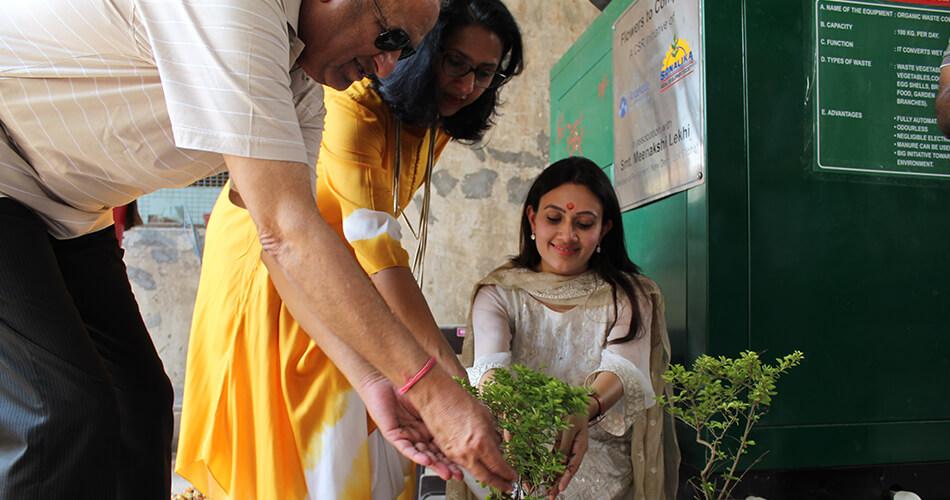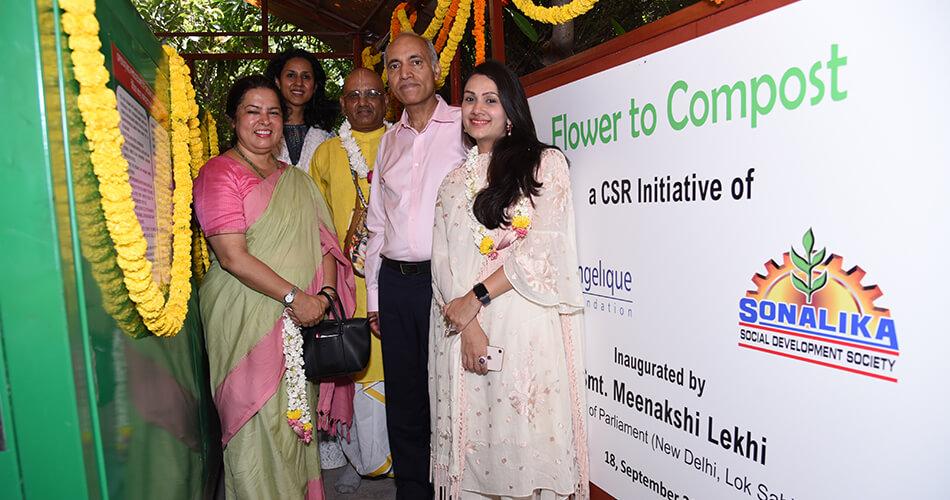With the “Swachh Bharat” mission working towards our national dream of ‘Clean India’, it’s time to add another dimension of making India green, and free from pollution. An India, that’s ‘Clean and Green”.
At Sonalika CSR, we are very passionate about the environment and the need to preserve nature. We are always ready to explore every possible idea that could protect the environment. At Sonalika CSR, we are working on various sustainable and contemporary initiatives at different places, with a common idea- to create awareness about the environment and make the earth a better place to live.
Crop Residue Management
The close relationship between climate and agriculture is undeniable. When farmers adopt better agricultural practices, the environment stands to benefit. At Sonalika CSR, we recognize the vital role of sustainable agriculture in creating a cleaner and greener world. That’s why we have taken on the mission of working closely with farmers in North India to raise awareness, provide education & machineries, and impart essential skills related to crop residue management. Crop residue management plays a crucial role in mitigating environmental impact and enhancing agricultural productivity. By equipping farmers with knowledge and techniques to effectively manage crop residues, we empower them to make sustainable choices that yield positive outcomes for both the environment and their own harvests.
We emphasize the importance of responsible agricultural practices, such as proper residue handling, utilization, and disposal methods. Through awareness campaigns, educational programs, and hands-on training, we aim to instill a deep understanding of the link between sustainable agriculture and a cleaner environment.
Additionally, we provide machinery such as the Happy Seeder, Super SMS, and Spatial Zero Drill Till to equip farmers with the necessary tools, thereby preventing the burning of crop residue. This proactive measure not only benefits the current generation but also has a positive impact that can be observed in future generations.
Native Tree Plantation
Recognizing the importance of instilling a sense of environmental responsibility from an early age, Sonalika CSR is actively engaging with young students in government schools to foster a culture of native tree plantation. By involving students in this initiative, we seek to empower and educate them about the significance of preserving our natural environment.
Through interactive sessions and hands-on activities, we encourage students to actively participate in the process of planting native trees. This not only provides them with a first-hand experience of environmental stewardship but also imparts valuable knowledge about the benefits of tree plantation, biodiversity conservation, and the role of trees in mitigating climate change.
By working closely with schools, teachers, and students, we aim to create a lasting impact on their understanding of the environment and inspire them to become future leaders in environmental conservation. Through this collaborative effort, we believe that young minds can become powerful agents of change, shaping a greener and more sustainable future for generations to come.
Waste to Compost
The way we handle solid waste has a significant impact on our water and sanitation systems. Improper disposal of solid waste can lead to pollution and contamination of water sources, posing risks to public health and the environment. One particular area of concern is the disposal of organic solid waste, which, if managed correctly, can be transformed into valuable compost. In recognition of this issue, Sonalika CSR has taken a proactive step towards promoting healthy solid waste management practices. To address the problem of organic waste disposal in public places, we have installed automatic biodegradable waste decomposer machines.
These innovative machines are designed to efficiently decompose organic waste, including food scraps, plant matter, and other biodegradable materials, through a natural process. By harnessing the power of microbial activity and decomposition, these machines accelerate the breakdown of organic waste, converting it into nutrient-rich compost. The installation of these waste decomposer machines in various public places, including temples and other communal areas, serves multiple purposes. Firstly, it eliminates the need for the conventional practice of discarding organic waste in landfills, where it contributes to the release of harmful greenhouse gases. Instead, the waste is responsibly processed, leading to the production of high-quality compost.
Secondly, this initiative promotes awareness and education among the public about the importance of proper waste management and the potential of organic waste as a valuable resource. By witnessing the transformation of their own waste into compost, people are encouraged to adopt more sustainable practices in their daily lives. Moreover, the use of compost derived from these machines has the potential to improve soil health and fertility, enabling the growth of healthier plants and crops.

